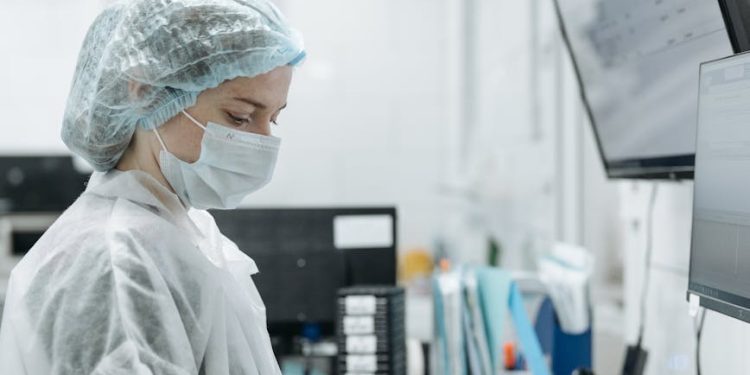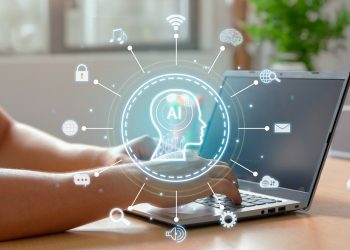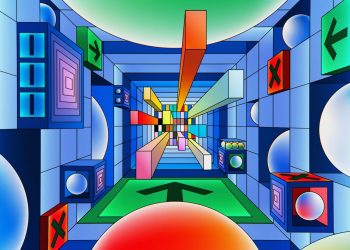Introduction to AI in Healthcare
The Crash of Brains and Bots in Medical Care
Artificial Intelligence (AI) is shaking up loads of fields, and healthcare is right in the mix. By popping AI into medical diagnostics, you're not just talking about some sci-fi fantasy. These tools use stuff like machine learning and natural language processing to amp up patient care. They can crunch big chunks of medical data fast, spotting patterns and making calls that humans can't always manage. This teamwork lets health pros make smarter choices, giving patients a better shot at getting well.
Why AI Is a Big Deal in Diagnosing Stuff
AI's changing the game for how we figure out what's wrong with folks. Here's why you should care:
-
Better Calls: AI can drill down into tricky data and get it right, cutting down the chances of messing up. That's huge, especially when dealing with serious stuff like cancer, where catching it early is a game-changer.
-
Gets the Job Done Faster: Letting AI handle some grunt work in diagnostics means speedier service, so you see more patients without burning out. Want to know how this magic happens? Check out our scoop on ai automation tools.
-
Saves You a Buck: Using AI slashes costs by cutting out the need to do the same tests over and over. This is a big help where cash is tight.
-
Looking Ahead: AI diagnostic tools don't just guess; they give you a solid heads-up on how a disease might unfold, letting you get ahead on patient care. If you're curious, our article on ai for predictive analytics lays it all out.
-
Tailor-Made Medicine: With AI, treatments are no longer one-size-fits-all. It takes into account your DNA, lifestyle, and all that jazz to craft personal care plans, which means better chances of sticking to what the doc ordered.
| What’s Cool | What It Means |
|---|---|
| Better Calls | Cuts down on mistakes, especially for catching big diseases early |
| Speedier Service | Makes diagnostic tasks faster, leading to quicker patient workflows |
| Saves You a Buck | Streamlines processes, cutting down costs on repeat tests |
| Looking Ahead | Offers insights into disease progression, paving the way for proactive interventions |
| Tailor-Made Medicine | Crafts treatment plans unique to each patient for improved outcomes |
To make sure you use AI without stepping on a few ethical landmines, healthcare systems gotta think about the moral stuff and keep patient data under lock and key. Dive into this further with our write-up on ai and cybersecurity.
Jumping into AI for health diagnostics is your ticket to a more precise, slicker, and patient-focused setup. From spotting issues early to customizing care, it's all in the cards. This tech isn't just for healthcare, either—check out how it's rocking other fields like ai in self-driving cars and ai in the legal industry to see where we're heading.
AI-Powered Diagnostic Tools
How AI Works its Magic in Healthcare Diagnostics
Artificial intelligence (AI) is shaking up the healthcare scene, making diagnostic procedures quicker and sharper. With AI's brainy algorithms and machine learning tricks, heaps of medical data get crunched in no time. Whether it’s scanning medical images, going through patient histories, or even predicting how a disease might play out, AI gets the job done, flagging stuff human docs might miss to boost the chances of nailing a diagnosis.
Some cool ways AI is doing this include analyzing images, reading through doctors' notes, and making educated guesses about patients' health:
- Image Analysis: Think X-rays, MRIs, or CT scans—AI can spot things like tumors or bone breaks better than ever.
- Natural Language Doodads (NLP): AI sifts through the clinical notes and scrambled data from your electronic health records (EHRs) like a pro to pick out what matters and maybe even spot hidden health dangers.
- Predictive Analytics: Keeps tabs on patient data over time to figure out the odds of certain diseases, so doctors can get a jumpstart on fixing them up with a special touch.
Want to see how AI is changing things in other areas? Check out our rundown on artificial intelligence uses.
Showing Off AI's Diagnostic Tricks
AI is popping up all over the diagnostic scene. Here are some standouts:
- Radiology: AI is a whiz at poring over X-rays and such to find cancer or other issues. For instance, AI can spot lung nodules on chest scans like it's nobody's business.
- Pathology: When it comes to tissues, AI speeds up the spotting of cancer cells faster than good ol' fashioned ways.
- Cardiology: With cardiology, AI digs into EKG info to figure out what might go wrong with your ticker. It can even give an early shout-out about heart attacks and rhythm hiccups.
- Dermatology: AI sizes up skin spots to tell if they're harmless or trouble. By using a big stockpile of pictures, it compares and makes its call.
Here's a sneak peek at how spot-on these AI tools can be:
| Diagnostic Tool | Job Description | Accuracy Rate (%) |
|---|---|---|
| AI in Radiology | Spotting Lung Nodules | 94 |
| AI in Pathology | Picking Out Cancer Cells | 96 |
| AI in Cardiology | Foreseeing Heart Attacks | 92 |
| AI in Dermatology | Judging Skin Spots | 93 |
By blending AI into diagnostics, healthcare peeps can work smarter and more precisely. This tech boost helps catch diseases early doors and steps up patient care, bringing personalized medicine into play. If you're curious about what else AI is up to, check how it's making waves in other areas like our article on AI and smart cities.
Improving Accuracy and Efficiency
Boosting Diagnostic Accuracy with AI
In healthcare diagnostics, AI is like your secret weapon, making it a breeze to hit the diagnostic bullseye. Using smart systems that crunch tons of data, AI can spot things in medical images, lab tests, and patient files that even the keenest human eye might miss. This sleuth-like precision leads to catching diseases earlier and more accurately, which means better outcomes for patients down the road.
Think about neural networks and machine learning algorithms as your trusty sidekicks. They sift through mountains of information at lightning speed, backing up doctors with trustworthy advice. For example, AI can help radiologists see tiny anomalies in X-rays or MRIs, and AI-powered pathology tools can pinpoint cancer cells with stunning accuracy.
Example Table: AI vs. Human Diagnostic Accuracy
| Who's Diagnosing | Who's Better (%) |
|---|---|
| Human Radiologist | 85 |
| AI-Assisted Radiologist | 95 |
| Human Pathologist | 80 |
| AI-Assisted Pathologist | 92 |
Dive into the world of neural networks in AI and see how they're shaking up various industries.
Making Diagnostics a Breeze with Automation
AI-based automation is like turbo-boosting the diagnostic workflow. It chops down that long wait between the initial scan and the final diagnosis. In healthcare, where timing can literally make the difference between life and death, that kind of speed is priceless. AI takes over the boring, repeat tasks like entering data, doing first-pass analyses, and cranking out reports, freeing up healthcare pros to tackle the tough stuff and spend more time with patients.
Imagine a diagnostic process that's smooth as silk. AI tools can absorb loads of data from wearable gadgets and flag potential health hiccups early. This proactive system not only ramps up patient care but is also a game-changer for resource management in hospitals.
Table: Cutting Down Time with AI Automation
| Diagnostic Task | Old School Time (mins) | AI Time (mins) |
|---|---|---|
| Data Entry | 15 | 5 |
| Preliminary Analysis | 30 | 10 |
| Report Generation | 20 | 7 |
Get the scoop on AI automation tools and their game-changing power across a host of fields.
AI is reshaping the landscape of healthcare diagnostics, giving an edge both in accuracy and speed. Entrepreneurs and tech gurus can tap into these innovations, elevating healthcare delivery, guaranteeing superior diagnostic results and slicker procedures. For an exploration of particular uses and the ethical bits, check out our posts on artificial intelligence applications and ai and cybersecurity.
Challenges and Considerations
So you're looking to bring AI into healthcare diagnostics—awesome! But hold up, there's some stuff we gotta chew over first to make sure it's all smooth sailing and no hiccups.
Ethical Implications of AI in Healthcare
You're stepping into a world where algorithms get to take the wheel, and there are some big ethical questions lurking around. You need to be smart about tackling these if you want AI to help, not hinder.
- Bias and Fairness: Remember that AI can pick up all sorts of bias trash from its training data. Next thing you know, some folks get the short end of the stick in healthcare. Mix it up with diverse datasets and keep those AI biases in check.
- Transparency: Everyone, including you, needs clarity on how the AI is connecting dots. A bit of transparency goes a long way in making people trust the tech instead of fearing a robot uprising.
- Job Displacement: No one wants to send doctors into early retirement. Make sure AI is there to boost what humans do, not pinch their jobs.
Addressing Data Privacy and Security Concerns
Protecting patient data is a top priority when you're dealing with AI-driven diagnostics. Data breaches are a no-go, and here's how to keep things locked up:
- Data Encryption: It’s like putting a padlock on patient info. Encryption keeps it safe whether it’s chillin’ in storage or on the move.
- Access Control: Only the VIPs in data management should have the golden key to sensitive info. Turns away unwanted guests.
- Regular Audits: Keep your ear to the ground with regular check-ups on your security setup to find and fix any weak spots.
| Security Measure | What It Does |
|---|---|
| Data Encryption | Locks down data whether stored or in transit |
| Access Control | Ensures only the right folks handle sensitive info |
| Regular Audits | Sniffs out and fixes weaknesses |
Make sure to focus on these issues if you're serious about welcoming AI into healthcare diagnostics. For more juicy insights on AI’s role in keeping data safe, check our piece on AI and Cybersecurity. And if you're really digging into ethical angles, our section on Artificial Intelligence Applications might be your next binge read.
Keep these ideas in mind, and you're all set to implement AI in healthcare like a pro—keeping it ethical, secure, and downright groundbreaking.
Integration into Healthcare Systems
Mixing AI with healthcare opens a whole set of opportunities and challenges. Making it work smoothly is key to boosting diagnostics and patient care.
Implementing AI Solutions in Healthcare Settings
When weaving AI into healthcare, you gotta follow a game plan to make it fly. Here's how you do it:
-
Assessment and Planning: Pinpoint what you need in diagnostics, and see how AI fits in. Sketch out a plan showing the steps, resources needed, and what you hope to achieve.
-
Data Management: Your healthcare setup needs to handle data like a champ. AI thrives on heaps of info. So, sort out your data storage, cleanup, and management methods. More on managing your data at ai and data analytics.
-
Technology Integration: Fit AI tools snugly with the tech you already use. You might need to buff up your IT systems and ensure they're a match with electronic health records (EHR).
-
Staff Training: Get the healthcare folks clued in on AI gadgets. Run some hands-on learning sessions to make everyone comfy with the tech.
-
Continuous Monitoring: Keep tabs on how AI’s doing. Look at accuracy checks, efficiency boosts, and patient results to make sure it's all running tip-top. Dive deeper into advancements at ai technology advancements.
Overcoming Resistance and Promoting Adoption
Not everyone's gonna love AI at first. Squashing fears and getting folks on board is a big part of making it work.
-
Highlighting Benefits: Shout about how AI can up your game in diagnostics. Talk about sharper accuracy, time savers, and better patient outcomes. Success stories? Share 'em. Peek into ai for business automation for more.
-
Addressing Ethical Concerns: Be open about any ethical stuff. Show how AI clears the bar and makes healthcare better. For more on ethics, swing by ai and emotional intelligence.
-
Ensuring Data Security: Tell everyone that their data's locked up tight. Use solid security to keep info from leaking. Learn more at ai and cybersecurity.
-
Fostering Collaboration: Get the tech folks, healthcare workers, and AI pros to team up. This way, AI tools fit like a glove to your needs.
-
Ongoing Support: Stick around for support during and after moving AI in. Tackle issues head-on and keep the tech peeps confident.
-
Feedback Mechanism: Make it easy for healthcare workers to speak their minds on AI tools. Use what they say to tweak and refine the setup.
Implementation Timeline
| Stage | Duration |
|---|---|
| Assessment and Planning | 1-2 months |
| Data Management | 2-3 months |
| Technology Integration | 3-4 months |
| Staff Training | 1-2 months |
| Continuous Monitoring | Ongoing |
By sticking to this game plan and tackling resistance, you can make AI a trusted buddy in healthcare diagnostics. It'll boost accuracy, smoothen the workflow, and take patient care up a notch. Want more on AI’s bright future in healthcare? Jump into ai technology advancements.
Future of Healthcare Diagnostics with AI
Cool Stuff Happening with AI in Healthcare
AI is flipping the script on healthcare diagnostics, and there's some exciting stuff going down. These advancements aren't just shiny—they promise big improvements in diagnosing what's wrong and figuring out the best way to get things right.
-
AI and Lots of Data: Mixing AI with huge chunks of data is a game changer. Doctors can train these smart systems with piles of info to make diagnostics better. Curious about data stuff? Check out our page on ai and data analytics.
-
Chatty Tech (NLP): This is where AI learns to get chatty like us. It's a lifesaver for sifting through doctor scribbles and patient paperwork. Want the scoop on what it's up to? Head over to natural language processing ai.
-
Speedy Machines (Quantum Computing): Teaming up AI with quantum computing supercharges how fast data gets crunched. This means quicker results from your doctor. Dive into the nerdy bits in our piece on quantum computing and ai.
-
Smart Pictures (AI-Powered Imaging): When AI gets into medical imaging like MRIs and CT scans, it can sniff out issues with laser focus. Cuts down on mistakes and helps doctors get you sorted faster.
-
Medicine Made for You: Think of AI like a tailor for your meds, tweaking treatments based on your DNA and history. If you’re curious how this plays out, see our take on ai and personalized learning.
How This Shakes Out for You and Your Doctor
AI's got some hefty tricks up its sleeve that could change how you and your doctor do things.
| What’s in it for you? | What that means |
|---|---|
| Spotting Issues Early | AI's got an early warning system for diseases, upping the chances of beating them. |
| Less Waiting, More Doing | Handles the boring stuff so docs can focus on the tricky stuff. |
| Fewer Slip-Ups | AI helps doctors make more spot-on diagnoses. |
| Lighter Bills | Streamlines work to cut down on costs. |
| Health in Your Hands | Gives you simple, tailored info so you can take charge of your health. |
Want a lowdown on how AI automates business tasks? Hit up our guide on ai automation tools.
With AI's potential, the future’s looking pretty smart for healthcare. These techy tidbits could overhaul diagnostics, making them slicker and more on the money. Fancy more brain food? Skim through ai technology advancements.











